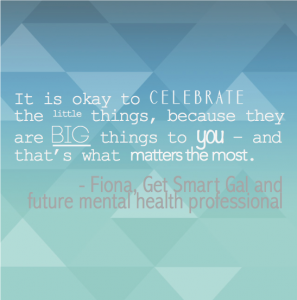 Artificial intelligence may be imminent, but that doesn’t mean we need to start acting like robots now. Power and leadership seem to go hand in hand with lack of emotion, or coolness. The idea of “if you show how much it bothers you, you look vulnerable and you lose,” is prominent in the work force. Though effective in business negotiations and even poker, these transactions don’t consume the majority of our lives. Simply put, personal moments are the majority of our lives – and we should be allowed to feel when we want to. Emotions should not be equated to weakness, and thinking so could damage our psychological health because we end up bottling up our emotions. It’s time to change this mentality:
Artificial intelligence may be imminent, but that doesn’t mean we need to start acting like robots now. Power and leadership seem to go hand in hand with lack of emotion, or coolness. The idea of “if you show how much it bothers you, you look vulnerable and you lose,” is prominent in the work force. Though effective in business negotiations and even poker, these transactions don’t consume the majority of our lives. Simply put, personal moments are the majority of our lives – and we should be allowed to feel when we want to. Emotions should not be equated to weakness, and thinking so could damage our psychological health because we end up bottling up our emotions. It’s time to change this mentality:
- To start, it’s okay to be a kid – “Meh, birthdays aren’t that important,” “It’s just luck,” “Nah, it’s not a big deal” – sound familiar? It seems excitement is dichotomously divided into little and big, and we have to remain composed and mature when little, but good, things happen. For example, a little thing could be finding giant nectarines at the supermarket, and a big thing could be getting accepted into university. Imagine what life would be like if everything was celebrated as a big thing. It is okay to celebrate the little things, because they are big things to you – and that’s what matters the most.
 It’s also okay to say ‘sorry’ – Apparently when we reach adulthood, it means we suddenly have years of experience, and we cannot be wrong. There is a resonating idea that equates apologizing with vulnerability. On the contrary, I argue the ability to say sorry means an individual is able to see others’ perspectives and extend empathy to reconcile the situation. Admitting wrongness shows a willingness to improve and work with others toward a better environment. There is so much strength in the word ‘sorry.’
It’s also okay to say ‘sorry’ – Apparently when we reach adulthood, it means we suddenly have years of experience, and we cannot be wrong. There is a resonating idea that equates apologizing with vulnerability. On the contrary, I argue the ability to say sorry means an individual is able to see others’ perspectives and extend empathy to reconcile the situation. Admitting wrongness shows a willingness to improve and work with others toward a better environment. There is so much strength in the word ‘sorry.’
- Finally, it’s okay to say ‘I don’t know’ – It is incredibly difficult to pretend to know something and then try and learn it on your own. We have all tried to do this at some point. Instead, admit you don’t know and just ask for help. Similar to saying sorry, this demonstrates a willingness to learn and collaborate with others. Nobody on this planet knows everything, and nobody expects you to know everything.
There you have it, three simple changes that lead to emotional empowerment – all three far easier said than done. Trust. I may be giving this advice, but I consistently find myself conflicted with taking my own advice. Remember, changes take time. Take your time and realize everything can be exciting, slow down and see someone’s perspective when you don’t see eye-to-eye, and don’t be afraid to admit uncertainty.
__________________________________________________________________________________________








Leave A Comment